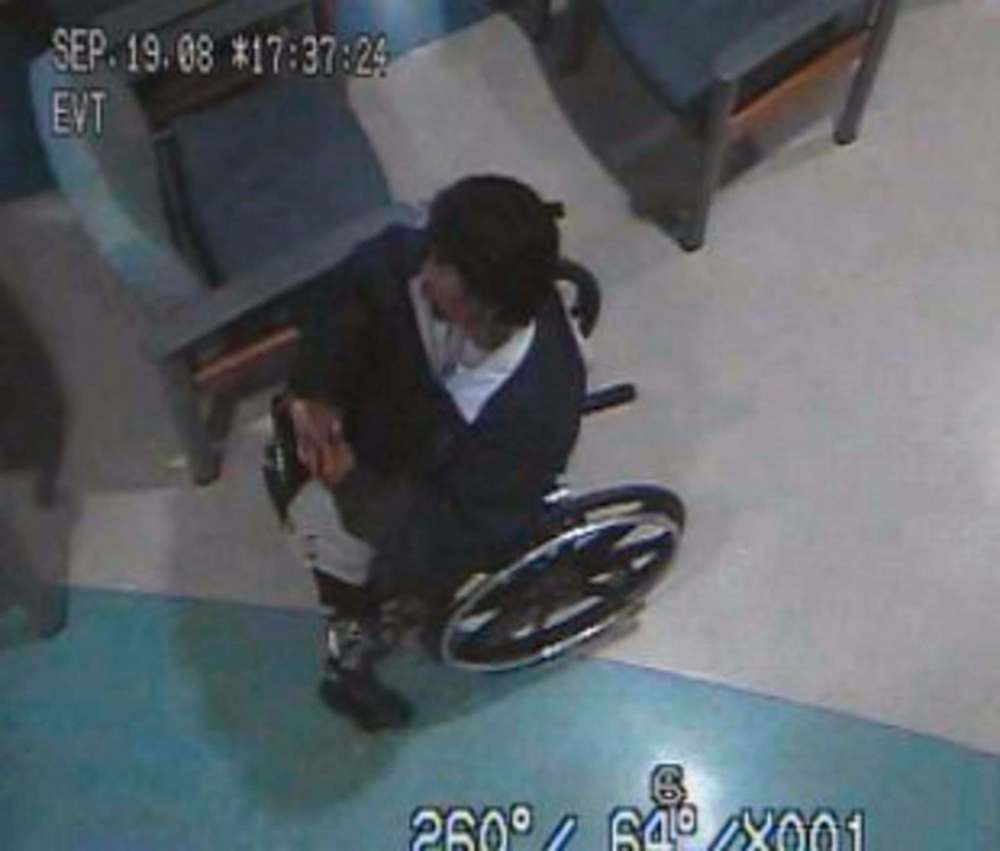WRHA pledges to take on racism
Advertisement
Read this article for free:
or
Already have an account? Log in here »
To continue reading, please subscribe:
Monthly Digital Subscription
$1 per week for 24 weeks*
- Enjoy unlimited reading on winnipegfreepress.com
- Read the E-Edition, our digital replica newspaper
- Access News Break, our award-winning app
- Play interactive puzzles
*Billed as $4.00 plus GST every four weeks. After 24 weeks, price increases to the regular rate of $19.00 plus GST every four weeks. Offer available to new and qualified returning subscribers only. Cancel any time.
Monthly Digital Subscription
$4.75/week*
- Enjoy unlimited reading on winnipegfreepress.com
- Read the E-Edition, our digital replica newspaper
- Access News Break, our award-winning app
- Play interactive puzzles
*Billed as $19 plus GST every four weeks. Cancel any time.
To continue reading, please subscribe:
Add Free Press access to your Brandon Sun subscription for only an additional
$1 for the first 4 weeks*
*Your next subscription payment will increase by $1.00 and you will be charged $16.99 plus GST for four weeks. After four weeks, your payment will increase to $23.99 plus GST every four weeks.
Read unlimited articles for free today:
or
Already have an account? Log in here »
Hey there, time traveller!
This article was published 18/09/2017 (2952 days ago), so information in it may no longer be current.
The interim president of the Winnipeg Regional Health Authority says it’s time to talk about racism in the health-care system.
Réal Cloutier spoke with the Free Press following the release of the interim recommendations from the working group tasked with looking at the role racism played in the death of Brian Sinclair.
The 45-year-old Indigenous man died of a treatable bladder infection after he was left alone and uncared for for 34 hours at the Health Sciences Centre emergency department nine years ago.

Cloutier’s comments are in line with the group’s call for health-care stakeholders to take a more direct approach to confronting racism.
The group unveiled its initial findings to a packed crowd Monday at the University of Manitoba. It recommended not just that anti-racist policies be adopted and implemented, but there be institutional support for independent investigations in cases where complaints are brought forward.
Although there is plenty for the WRHA to consider moving forward, Cloutier was struck by comments about the difficulty people still face in naming and talking openly about racism.
“You’ll notice people don’t actually die of racism, they die of infection,” said Sherene Razack, author of Dying from Improvement: Inquests and Inquiries into Indigenous Deaths in Custody. “We’re at a loss to name what exactly happened in that emergency room.”
People seem to only understand racism as individuals with swastikas, she said, instead of whole systems that perpetuate “the persistent devaluing of Indigenous life.”
Sinclair didn’t die because one person wanted him to die, rather, as the group wrote in its interim report Out of Sight, “He was not seen as a patient needing care… staff assumed that he was homeless or intoxicated or just hanging around.”
Tackling that assumption is where the WRHA’s focus must go, Cloutier said.
There have been a number of improvements since Sinclair died — new Indigenous partnerships, cultural sensitivity training, standardized policies around triage — he doesn’t want to diminish.
However, Cloutier said, it’s time to build on what he deems a greater awareness of Indigenous history to tackle health-care providers’ assumptions.
“I think to talk about systemic racism today is different than even 10 years ago,” he said.
“I think there’s an acknowledgement that we make that it’s not that people go out overtly to discriminate, but it’s the assumptions we make.”
Sinclair arrived at the HSC emergency department in September 2008 with a doctor’s letter outlining his condition, but he wasn’t properly registered.
No health-care workers attended to him at any point during the next 34 hours, not even when members of the public tried to advocate on his behalf.
He vomited multiple times, he slumped into his wheelchair, he became increasingly ill and still staff told concerned members of the public “he was not sick, but rather sleeping or intoxicated.”
It’s a story that repeats itself, Razack told the crowd at the University of Manitoba: “You can’t imagine how many people died calling for help in places where they should have had help.”
It won’t be as easy as the WRHA’s year-old mandatory online course to learn about Indigenous history, Cloutier acknowledged, although he plans to address the group’s recommendations at the WRHA board level.
“We have to be attentive and objective when providing care and that’s going to be a more difficult cultural change in our system,” he said. “It’s the assumptions we make, that’s the piece that’s more subtle and we need to address.
“How do you get into people’s headspaces and the assumptions we make? How do you improve our health-care system so you’re not drawing a conclusion about why people are seeking care?”
Bottom line, Cloutier said, is it shouldn’t matter what brings someone to the clinic or the hospital, it should only matter they’ve come.
“We’re there to provide care and compassion.”
The group’s final report is expected sometime in 2018.
jane.gerster@freepress.mb.ca
History
Updated on Tuesday, September 19, 2017 6:24 PM CDT: Adds report.

